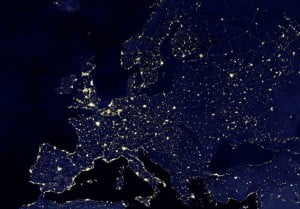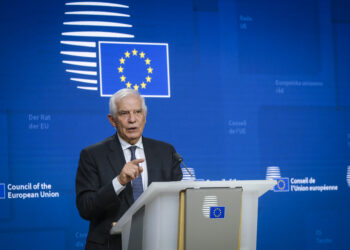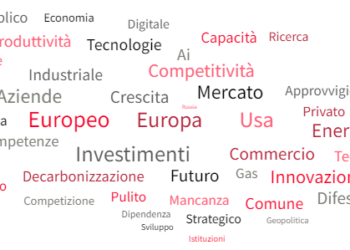The Premier Enrico Letta recently released a lengthy interview to the main European newspapers (for Italy La Stampa on November 1st) in which he states bluntly that either you are able to fight the growing populism or Europe will be destroyed. And he says in order to do so, Europe must raise the flag on employment for young people and for a united and renewed answer on the immigration issue. Considering that the risk threshold of the forthcoming European elections is to have a Parliament that is more anti-European in the post-war history, with 25% of voters that reward the various nationalist and populist forces. Letta affirms that the theme is still approached too timidly in different European countries and believes that the battle throughout the coming months will be Europe of the people against Europe of populists. I know that what he’s saying is not just words but firm convictions and certainly not today. For this I am grateful. I really think that every passing month, as it has been painstakingly built up over 60 years, is objectively increasingly at risk and the growth of anger turns into “anti”.
The latest European Parliament Eurobarometer made public on October 18th, a few days before the last disastrous European Council, indicates with unusual clarity that only 31% of Europeans still believe that the European Union is the solution, while 60% of Europeans (with very few exceptions) believe that the EU is the problem or is no longer the solution. A tragic fact. While policy is played around with like so many tactical games and system solutions put in place so far, not only does it seem not to give the expected results, but generally speaking, in many cases it has worsened the conditions of the social crisis and made economic recovery more difficult. Just think of the meter on unemployed Europeans, which never ceases to increase every month (now we’re going on 27 million with a considerable number of young people), as well as that of people at the threshold of poverty level (now a quarter of European households), while in the vast majority of countries, small and medium-sized enterprises, which are the backbone of this continent’s economy, continue to fail in greater numbers than those that are opening and all have structural problems of accessing credit, which for six years does not seem to get resolved.
Even in a country like Germany, the President of the German industry urges the new Parliament not to risk too many social innovations because the reasons for the crisis and weaknesses of the economic system and Germans’ finances is already worrisome enough and probably the same Commission will present some remarks on the imbalances of the system in his notes on the German Stability Law in the coming weeks. It is useless to still tinker, because except for Germany, where the ruling party won the last elections and for now the anti-Europeans have been largely contained, in many other countries it certainly is not the case; suffice it to mention Belgium, Hungary, Britain, and France, where a number of reserved surveys indicate the Front National party leader, Marine Le Pen, as a possible first party, and Italy, where only based on the last political elections, we are already beyond 30% of anti-European parties (Grillo and the Northern League ), add to that the fringes of the left-wing and a good part of the reborn Forza Italy, which basically revives feelings that never dissipated.
There is an urgent need to change the registry in order to avoid disaster. Starting with the next few weeks and months remaining for governments to try to reverse this dangerous deviation. First, we must make decisions that produce results that come out of complications from themes and return to talk in real life about people, families and businesses. Stop continuing to look at what the Eurobarometer says. Europeans questioned about what the main priorities of the next European budget should be say: 50% of social security and employment; 48%economic growth; 43% education and training; 41% health and welfare. Clearer than this …! So what does it take to get a real European guarantee fund for credit for PMI (Purchasing Managers Index), which allows the 3 million PMIs which in Europe are now surveyed, have a growth potential of being able to invest and create new jobs and wealth (5 new jobs in a year for each makes 15 million jobs ….). Or increase investments in “green economy,” since everyone thinks they can produce 20 million stable jobs in the next 5 years. Or continue to invest in creativity and innovation of social enterprises, which have grown by an average of 30% in terms of turnover and employment across Europe in these years of crisis, proving they seriously know how to take charge of the general crisis of the social policies of the entire continent. But this is not enough; Europeans need to understand and perceive with clarity the policy direction for the coming years with strategic goals that seriously address the web of what this Union wants to be and what role it wants to play in the world in the next ten years.
You cannot just live by adjusting major policies of the past and by containing the budget deficit! I see 4 big European policies that can become the driving force of our economies and society with great clarity and they are clearly understood by all. Number one: Europe needs a strategy for development and growth which is also equipped with appropriate instruments and that balances industry investments on networks, but also on social infrastructure. It’s called Europe 2020. Let’s stop keeping it in the drawer and let’s seriously make a strategic common policy, as it was in the past for the construction of the internal market or the agricultural policy or the regional cohesion policy. There is an opportunity immediately, these next weeks: the analysis of member states’ budget laws given to the Commission by the Council should not only be under the microscope for the stability of public finances, but also and especially for those key issues, thus giving the sense of a breakthrough. Next there is the issue of energy – with all its implications in terms of security, international relations and diversification of sources, of saving and reducing waste – that remains enormous. A business that by itself can change the way we view the continent. Then there is the Mediterranean, where we lost 20 years and of which we only notice when Libya needs to be bombed, some boat sinks in our sea, or there is risk of war in Syria. Today this is where major risks to our security are, but also to our future. And finally, the opportunity opened by the new trade negotiations with the United States, which is scary for many, but is the only real opportunity because our democratic and economic systems can still play a leading role in the global world, raising potential growth and  increasing social and environmental standards of our own tradition on a planetary scale.
increasing social and environmental standards of our own tradition on a planetary scale.
I do not think I am delusional or a daydreamer if I say that they need to position on this ground the political forces who want to fight for a Europe of the people, the social forces who want to give voice to serious involvement of citizens and not just be the echo of some sector interests or even some reasonable and motivated protests, together with the crucial role of stimulus and construction of public opinion represented by the media. Only a general and collegial effort from Europe’s leaders, starting with a little courage and clarity from the leaders of the different European countries can take on the challenge. And like this they can appeal to the great resources that are still on this continent, because they come from their own thousands of reserves and small forts and put them back into play, risking and thus generating new confidence and betting on our common future. Recalling a phrase that Pope Francis repeats often, “Don’t let them steal our hope,” I have to remember that an interesting interpretation identifies the word “hope” as a derivative from the root of an Indo-European language and means “strive” for something. Therefore, hope refers to a tendency towards something, formulated with precision and which you point to with a certain intensity. Thus, this hope, which we shouldn’t allow to be stolen from us, cannot be waited for idly, but with vigorous, vigilant and courageous action.




![Aerei Saab [foto: imagoeconomica]](https://staging.eunews.it/wp-content/uploads/2024/11/Imagoeconomica_2292144-350x250.jpg)




